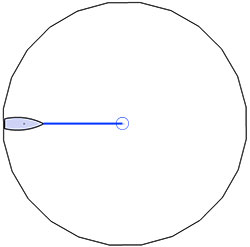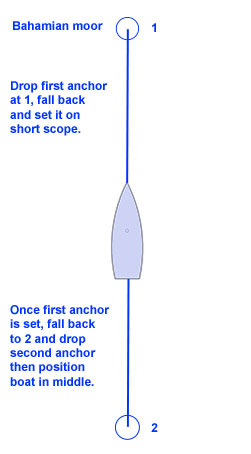
Web Project by Ben Renshaw, PHYS-104
Home
The Sail Boat
- Buoyancy
- Center of Gravity
- Sailing
- Navigation
- Anchors
Bibliography
Fluke anchors are most common for sailing vessels and are self burying. The physics behind older anchors was mostly their massive weight. In contrast, the fluke is light weight. As seen in the diagram below, when the force of the blue arrow is parallel to the soil the anchor can dig into the soil.
Since the fluke anchor weighs less than
other anchors it takes less work to pull it up.
Work=Force*Distance and Force=mass*acceleration.
By having a lightweight anchor we decrease the
mass which decreases the force needed to lift the
anchor and therefore requires less energy.

It is also important to know some ways that boats can lay anchor. Different types of anchoring allow for different amounts of swing. We can see in the picture above that having only one anchor causes the greatest amount of swing.

http://www.schoolofsailing.net/anchoringstylesandmooring.html
In order to
minimize swing, two anchors can be set. This is
referred to as a Bahamian moor.
| |
|